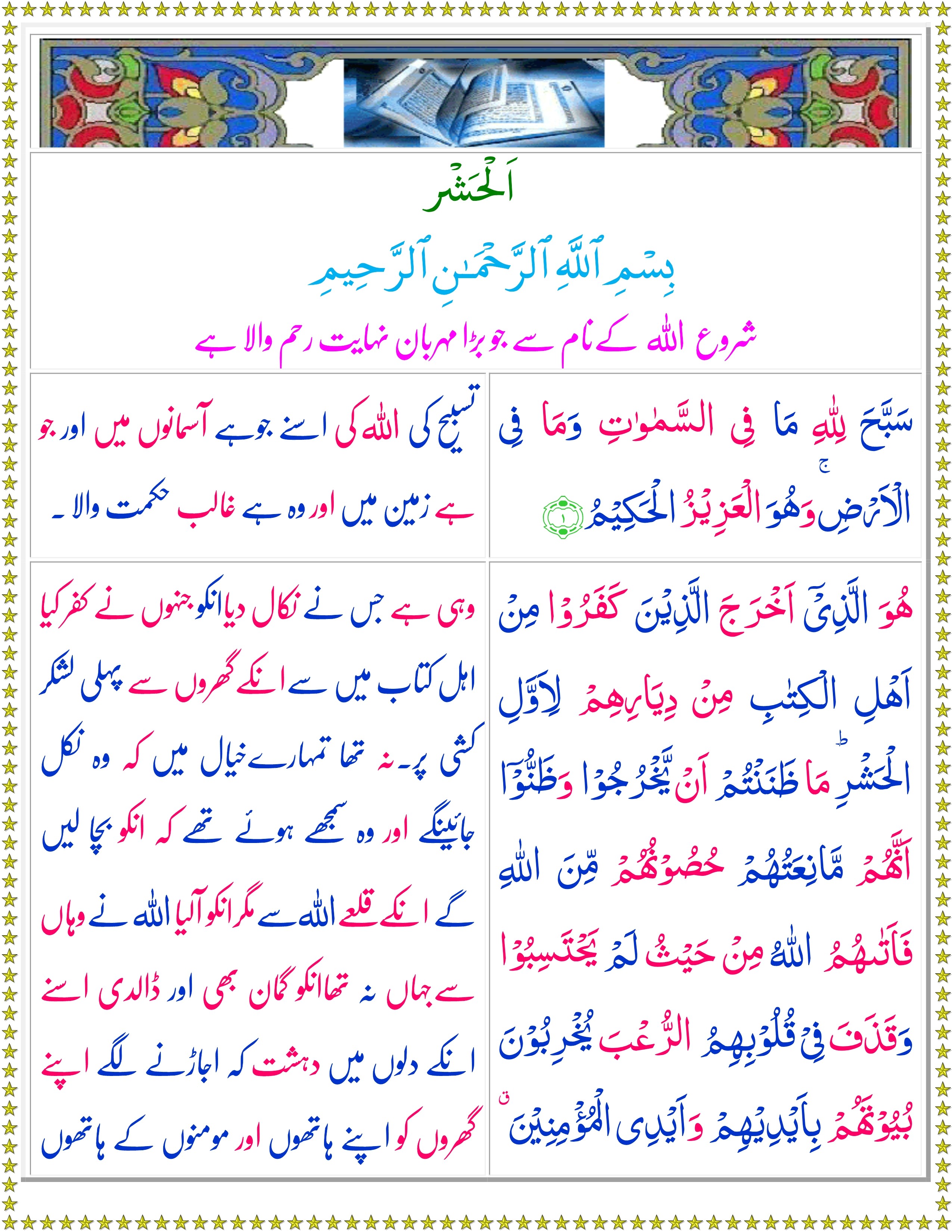

It belongs to Allah and His Prophet and is to be distributed among the relatives of the Holy Prophet (see commentary of Anfal: 41 Nahl: 90 Rum: 38), orphans, the needy and the wayfarer, so that it does not concentrate in the hands of a few rich-this serves as a basis for the socio-economic system of Islam.Īfter the Holy Prophet his share has to be given to the Imam of his Ahl ul Bayt in addition to the share of his relatives.

The warriors are not entitled to any share in the property of fa-i as stated above. It was a just and wise decree of the Lord of the worlds to restore the lands to their original owners and thus bring peace and order in the region.įa-i is derived from afa which means "returned to". Seeing the growth of Islam they became more active and aggressive against the people of Madina. Since then they had been scheming and plotting to retain the usurped properties by hook or by crook. The Jews of Madina had come from outside and seized the lands of the original inhabitants. The voluntary submission of the enemy in verse 2 has been referred to here. Even in the case of anfal the authority of the prophet of Allah is unchallengeable. In this way it is distinguished from anfal (spoils), taken after fighting. When disbelieving possessors turn hostile and aggressive against Allah and His Prophet, then, if their possessions are returned to the prophet of Allah without any effort or exertion on the part of the believers, such possessions become the property of His prophet. They are made available to people as a trust. Mahdi Puya, a 20th century Shi'a twelver Islamic scholar writes regarding this verse:Īs has been asserted in several verses of the Quran whatsoever is in the heavens and the earth and between them belongs to Allah. The matter is mentioned in Sahih al Bukhari in detail in the chapters on Khums al Maghazi and al Mirath Shi'a view On reading this verse Omar declared that the land was reserved for the Holy Prophet. Bani Nadir) deliver to his Apostle, to conquest which you did not lead any camels or horses, but Allah empowers his Apostles over who, he pleases". However, from the verse of the Qur'an it appears that the lands of Fadak were the Holy Prophet's own property, and that Omar himself understood the verse to imply so: "What Allah has made this people (i.e. Shibli Nomani, a 20th century Sunni Islamic scholar writes:Īfter the conquest of Syria and Iraq Omar addressed the companions, he declare on the basis of the Qur'an that the conquered territories were not the property of any man, but that they were a national trust, as has been discussed under Fay.

However, as opposed to all other Sunni historians, Shah Waliullah and Ibn Taymiyyah do not accept that Fadak was in possession of Muhammad.


 0 kommentar(er)
0 kommentar(er)
